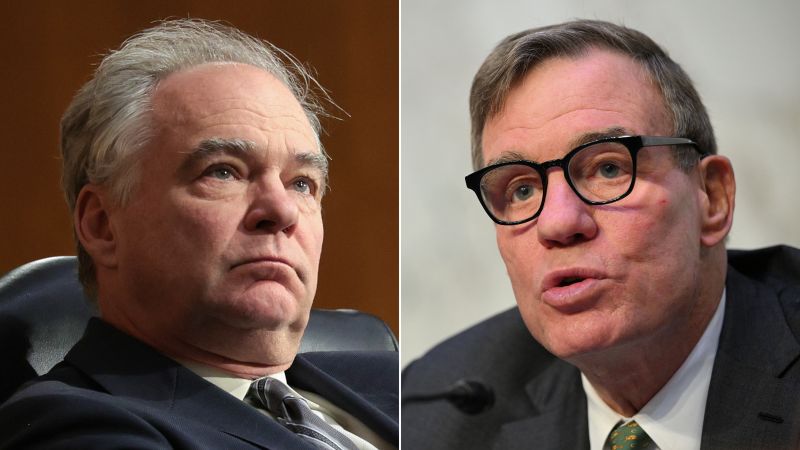In efforts to extend current federal aviation programs, lawmakers are facing obstacles in the form of Democratic senators opposing the legislation until there is a commitment to vote on eliminating additional flights at Ronald Reagan Washington National Airport. The comprehensive Federal Aviation Administration reauthorization bill, aimed at guiding aviation policy for the next five years, is being debated over various provisions, including filling a shortfall of air traffic controllers and setting policies for airline refunds. Current FAA programs are set to expire, prompting the House to pass a one-week extension in order to give lawmakers more time to negotiate.
One of the main points of contention in the current debate is the addition of more flights at Reagan National Airport, with Washington-area Senate Democrats pushing for an amendment to remove longer-distance flights from the airport. Senators Tim Kaine and Mark Warner have expressed concerns about overburdening the airport, citing a recent near-miss incident as evidence of the potential dangers of adding more flights. They are refusing to grant unanimous consent on the stopgap bill without assurances that their amendment will be put to a vote, prioritizing passenger safety over direct flight convenience.
Lawmakers in the DC area rely on Reagan National Airport for quick access to flights home, but a perimeter rule limits the length of flights departing from the airport to a 1,250-mile radius from DC. This rule has made it difficult for lawmakers from western regions to catch flights directly from Reagan National, and proposals to add more flights have sparked debate over congestion and safety concerns. A compromise bill under negotiation would allow for five additional flights daily, much fewer than some had hoped for, with concerns raised by the airport authority over the capacity of the main runway and the potential impact of increased flights.
Republican Senator Mike Lee proposed adding 56 flights, with a limit of eight per hour, in an effort to accommodate lawmakers from outside the perimeter. As debates continue over the FAA reauthorization bill and the future of flights at Reagan National Airport, various viewpoints are being considered to balance the convenience of lawmakers with the safety and efficiency of airport operations. The final decision on the extension of federal aviation programs and any changes to flights at Reagan National will require careful negotiation and consideration of all stakeholders involved.















